Tagged: Thoughts
Pop-up tree shop
- by Alyson Shane

There's a pop-up Christmas Tree store down the street from my house.
It's next to the convenience store that I never go into, which is attached to a hair salon which is also offers sensory deprivation tank experiences
(a strange combo, if you ask me)
and 1958, which has one of the best breakfast bennies of all time.
I saw them putting it up the other day as I walked by on the way to a meeting
It's so hip and beautiful.
All greenery, gorgeous old wood, hay bails, and charming string lights.
One thing about us Millennials I've noticed is that some of us have, like, crazy-good style.
Maybe that's what happens when you spend all your time scrolling through highly-curated Instagram feeds. Maybe become hip by osmosis.
A few days ago I was sitting sitting next to the window at my favorite used bookstore and cafe and all these families from the neighborhood keep walking by as I'm sitting there with my London Fog.
Parents in big vintage jackets and lots of plaid. Fur-lined hoods. Cute kids in little knit scarves and hats. Dogs of all shapes and sizes. Everyone's bundled up, smiling and having a good time.
On second thought, maybe it's just that Canadians are hip af.
There's a coffee shop in my neighbourhood
- by Alyson Shane

(image via Simone Noronha)
called The Neighbourhood Bookstore and Cafe.
Which is such a charming name I can't even.
I hang out here a lot since it's right in my 'hood, and all the walls are lined with books and I think better when I'm around books.
They sell good coffee, board games, used books, and little sandwiches and snacks and bananas. Their London Fogs are pretty stellar, too.
There's this little patio-style area next to it where they put out tables and chairs and fairy lights, and there's often live music there in the evenings, and sometimes inside, too.
Book clubs and student groups and writers circles meet here on a regular basis and it's about as perfect and quaint as one would hope a neighbourhood coffee shop to be.
And it's almost always packed, too.
Which makes me happy, because for a while it didn't look like the The Neighbourhood Bookstore and Cafe was going to stick around.
The city was trying to enforce a bylaw that requires restaurants to have grease traps installed, and since all they make here are sandwiches and deserts (not exactly "restaurant" food) the owner was fighting it in court on the basis that installing one was an unnecessary and unreasonable expense for his business.
I think they fought it a bunch of years, actually.
And shortly after I moved into Wolseley The Neighbourhood Bookstore and Cafe started having weird hours, and then closed for a period of several months.
It broke my damn heart because the reason I live in the part of town I do is because I love the small businesses and mixed-use space
(not to mention the big, old elm trees)
Small businesses are the heart of our economies and communities, and it always saddens me when I think we're going to be losing one - especially for such an unnecessary reason.
But then earlier this year it reopened! The news reported that then owner had come to some sort of deal with the city that allowed him to reopen.
The old, familiar whiteboard started popping up on the side of the building, saying:
"We are unequivocally, unabashedly, open!"
And though I try not to blow all my money on fancy coffees, London Fogs, and nice snacks
sometimes it's nice to come back here and listen to the chatter of a bunch of people having a good time,
listening to The Tragically Hip, writing this.
Eating soup slowly
- by Alyson Shane
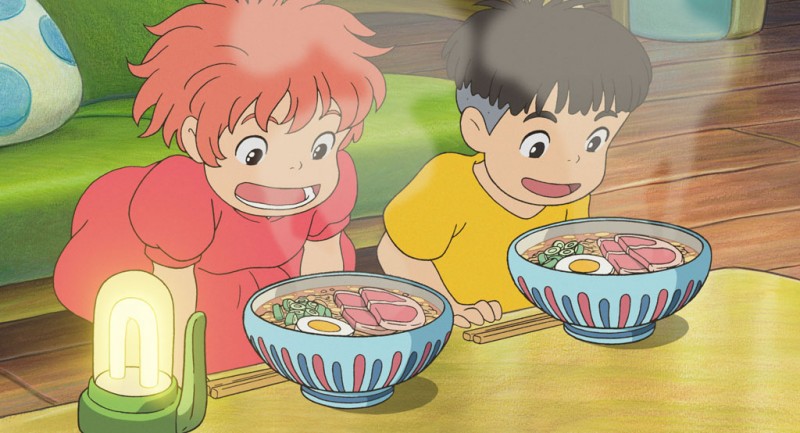 I'm bad at rushing through my workday.
I'm bad at rushing through my workday.
I try like hell to sit and sip my coffee, read the news, catch up on some articles, etc, before I start my actual workday, but even when it's stuff relating to my business or industry I still have a hard time sitting still in the AM.
There are emails to respond to. Profiles to update. Trello checklists to check-off. Copy to write, review, publish. Tasks upon tasks upon tasks.
Y'know, regular workday stuff.
I'm my most productive in the mornings and it often feels like I'm "wasting" my time taking things slowly in the AM.
Which is why it's nice to force myself to slow down for real, sometimes.
If I need to dive headfirst into work stuff in the morning I try and take a breath at lunch. Come up for air, peel away from my desk, go into the kitchen and make myself some lunch.
I try not to listen to anything; no music, no podcasts. Nada.
Just spend some time alone, clearing my thoughts, making something tasty.
Most days I just make a smoothie or a snack plate or leftovers so I can get back into the swing of things and eat as I work (told you I have a problem)
but some days I eat soup.
And soup days are the best days
because you have to eat soup slowly.
You can't rush soup or you'll burn the roof of your mouth, which means taking a little extra time to sit and enjoy it. Take slow sips. Wait for it to cool. Dig out the noodles or veggies or other goodies. Gauge overall heat. Repeat until done.
No music. No work.
Just me, my thoughts, and a bowl of soup.
Oh, and toast for dipping because I'm clearly not messing around.
Shouting into the void
- by Alyson Shane
Recently I've been struggling to figure out what to write here.
When I was writing content specifically for my industry it was easy; I just picked a topic, found some supporting articles, and wrote to my heart's content. I'm good at breaking down complex ideas into easy to understand written documents, posts, or essays.
Writing has always been my superpower.
These days, though, it often feels like it fails me. Not because I don't have the words, but because I often worry about the repercussions of what will happen if I say anything. If I open myself up, again and again, as I examine new and old wounds, learn from my mistakes, reflect on the past, figure out who I want to be... all that good shit writing has always helped me do.
But I've been stifling myself recently because I've been trying to avoid instigating any contact from my family. My brother, in particular, tends to reach out every few months in some sort of angry, nasty, or passive-aggressive way. His words don't hurt, but it's difficult to know that he's clearly grappling with some narrative of what happened between my parents and I, and why I'm not in his life, than what actually happened.
So I'm just going to lay it out here, simply, and put it to pasture:
In February of 2014 I asked my parents for space from my mom for a while. I was starting therapy and my therapist suggested I put a some distance between my mom and myself while I started to unpack the abuse I'd experienced growing up, and the anxieties and issues I still experience as an adult as a result of what I went through.
My dad suggested I write my mom an email explaining my reasons, so I did. My mom never wrote back. My dad, when he did, told me to "have a nice life," and said he hoped I was never in a position where "I had to choose between my spouse and my child."
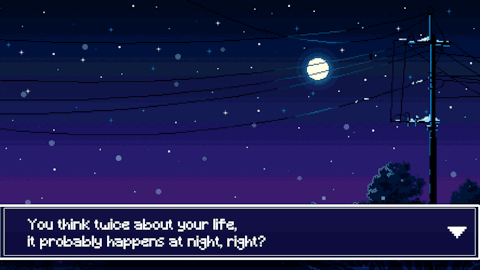
That's it.
Since then I haven't spoken to my father. The only other time I've heard from my mom is when she left a series of comments here, on my blog, to let me know what a selfish person I am because I chose not to be present when my nephew was born.
(And really... oh well, if that's what she thinks. Not like I was ever winning her over, anyway.)
But my brother. The one who follows me online, reads my updates, and is clearly upset with me to the point of sending me multiple messages, comments, and tweets over the past few years. What does he want? An apology? Some sort of explanation?
Maybe he, too, is just trying to be heard in a family that doesn't actually listen to one another.
Sometimes I lie awake at night and I think about my siblings. So close, yet so far away from me. I say words, I type thoughts, but talking to them has always felt like I'm talking to a brick wall.
Like I'm shouting into the void.
It always has, honestly.
A few months after my parents stopped talking to me I received an email from my aunt in Toronto. She said "I would just have to say that it is extremely unfortunate that your distain for your mom has resulted in such complete alienation from the rest of the family" which came as a shock to me at the time because my aunt witnessed firsthand the abuse I experienced growing up.
She, more than probably anyone else in my life, should have been able to remember how things went down when I asked for space. She, of all people, should be able to look a lie in the face and say "no, that's not what happened." But she didn't, or couldn't.
And at that point I realized that, maybe there's just no going back.
I'm just never going to make any of them, my dad, my brothers, my aunt... any of them, see me for who I am. To them, I'm an idea of a person. A ghost version of myself who does and says things with a completely different set of morals and values than who I am.
The longer I keep my distance, the longer my mom has to gaslight, manipulate, and convince my family that I'm what she always told them I was: some selfish, horrible person who doesn't care about anyone but herself. The longer I'm away the easier it is for my brothers to believe it. It's easier for my aunt to believe that this is the way I wanted things to be. It's easier for my dad to believe it, and keep refusing to stand up and do what's right; to say "I'm sorry. I should have stood up for you."
Because at the end of the day all I've ever wanted is to be heard. To feel like my emotions, experiences, and thoughts have value. To not have to constantly battle against the false narrative that was created about me, and which persists to this day, stronger than ever, in my absence.
It's why I started writing.
It's also why I stopped. Or have mostly stopped.
I started feeling like here, too, anything I said was going to just get twisted around or misinterpreted. My blog, a place where I once felt I could be completely and utterly myself... became the void I've been afraid to look down into. To shout my thoughts and fears into.
But, y'know... fuck it. The truth, my subjective truth based on the actual facts and events that happened, is out there now. There's not much worse I can do to draw any ire than state the facts as plainly as I see them.
So now it's time to get back to the business of why I've always written: because it helps me as a person, and is something that I love, long for, and can't help but do.
I'm so ready, and happy, to get back to this place.
Sick days
- by Alyson Shane
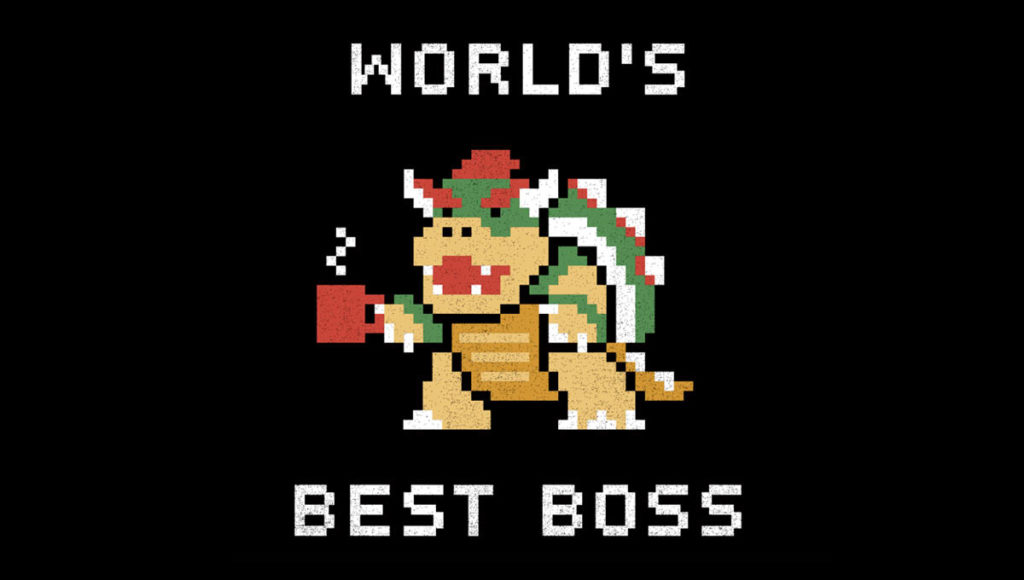
Went to bed feeling like hell last night and woke up feeling worse today. Aches, pains, lethargy, you name it I've got it.
Except nausea. Thank god I rarely get sick to the point that I throw up.
The last time that happened I was working in a small office and I took (gasp) two days off in a row because I was honestly just puking everywhere. It was awful.
When I went in on Wednesday the office manager said "hey just so you know our boss noticed that you took two days off and you're on his radar."
Apparently he had calculated that if I kept taking sick days at 2 sick days per month (this was in January) omg I'd wind up taking 24 sick days that year.
So I walked into his office and said:
"Hey, if you have an issue with the sick time I'm taking please speak to me about it directly. Making assumptions about my sick days isn't cool and if you're going to start accusing me of abusing my sick time in advance of me doing so I'd appreciate it if you didn't go through the only other person in the office to let me know you thought it was a concern."
Which I thought was reasonable. I like to think of myself as a relatively reasonable gal.
It didn't go over well.
A few months later when I left and started running Starling full time I promised myself that whenever I felt sick I would take the damn sick day if I needed it, and I've been doing pretty good so far.
There have been a few days when something unavoidable is planned/due, but overall I handle them pretty well, I think.
Usually my sick days look like this: sleep in as late as I need, tackle as much necessary work as I need (responding to emails, reviewing copy, reviewing reports, etc) and then I make lunch and engage in a low-energy task like reviewing ad performance or adding to a content library.
If I need to lie down and nap or something, though, I do it so I can get back into the swing of things in the AM. No sense over-exerting myself if I'm going to be useless for the next few days as a result.
I don't kill myself if I'm feeling sick, and I don't expect the people who work for me to do so, either.
Like I said, I like to think of myself as a reasonable gal.
Now if you'll excuse me I need to go have a little lie-down. My head is killing me.
I'm turning 30 soon, and here are some thoughts on that
- by Alyson Shane
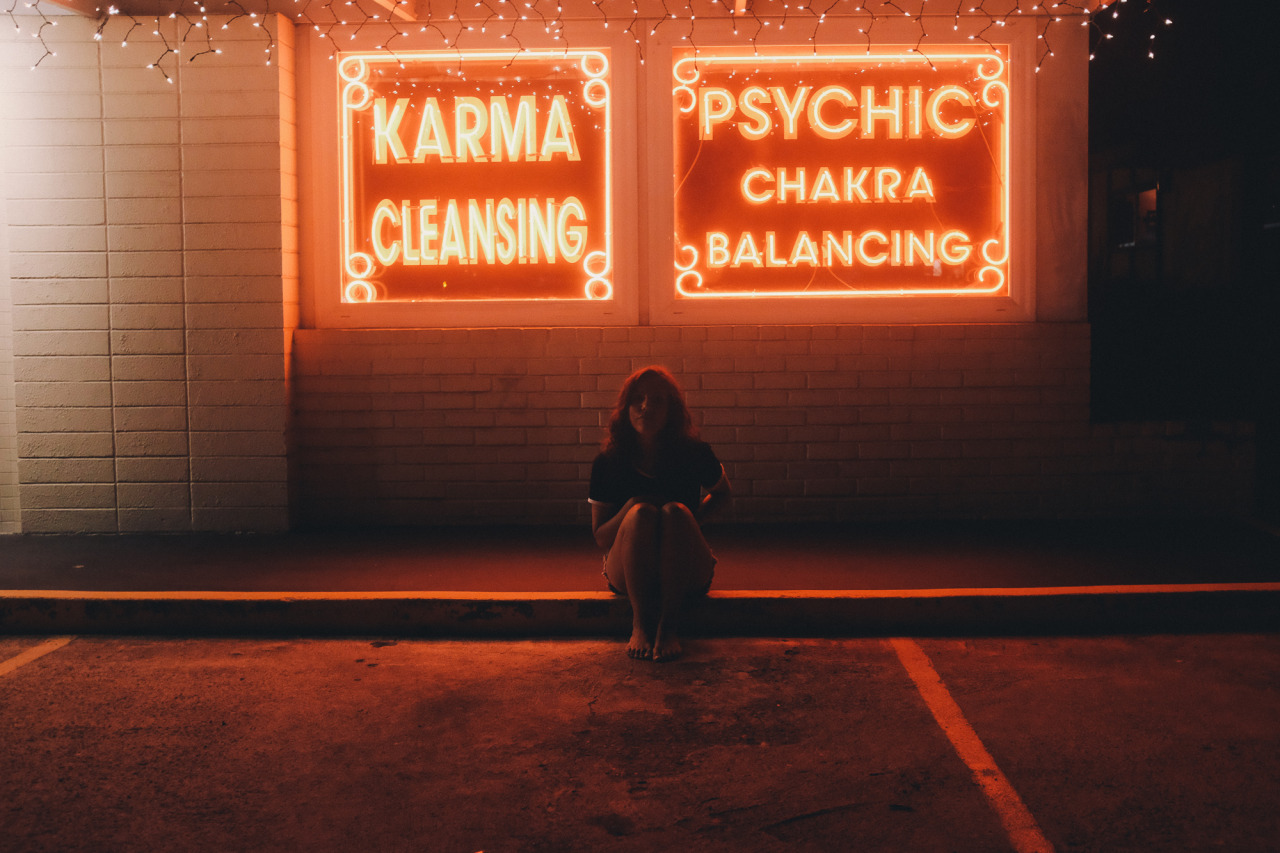
It's nearly here. My 30th year.
Part of me almost didn't expect to get here, if I'm being honest.
Because for most of those 30 years, I didn't feel like my life was worthwhile.
Sure, there were pockets of happiness; moments that shine. But for the vast majority of my life they were few, and far-between.
I was never excited about my future. As far as my parent's vision for my life was concerned, I wasn't good for anything other than a "safe" job. That the best I could (and should) hope for was to find a union job (so I couldn't get fired), and to "keep my head down" until I retired quietly.
(and look - that's a great path for some people. No shame in a unionized job. But it didn't exactly leave me feeling as though I could possibly do anything else.)
I struggled in high school as a result of a messed-up home life. I was often too anxious to go to class, so I'd skip. Then, because I'd already skipped 2, maybe 3 classes that week, I'd just skip the whole week because it made me too anxious to go into class, be singled out by the teacher, and be reminded of just how far behind I was.
I was told I was stupid and I felt that way, and my grades reflected the assumptions I made about my own intelligence.
I was told by my parents, and as such believed, that I was a fundamentally bad person; lazy, selfish, self-centered, and a liar. For a really, really long time.
As a result, I assumed that my life would be, as Thomas Hobbes so aptly put it: solitary, poor, nasty, brutish, and short.
(Ironically I'd go on to study Hobbes in a Social & Political Philosophy class while competing my B.A., something that, even at the time, I didn't feel smart enough or capable enough of achieving.)

But things are different now.
I don't believe those things anymore.
I'm still dealing with the fallout of those beliefs, though. Not a day goes by where I don't have to unpack something in some small way.
Watching my tongue when I get upset with someone.
Not getting defensive during a difficult or challenging conversation.
Never giving the silent treatment or "punishing" my partner when I'm upset with them.
Learning to say "I'm sorry. I was wrong."
Repeating these sentences every day to myself like a prayer:
"You're good enough."
"You're smart enough"
"You deserve the good things in your life."
Some days I believe those things more than others. But I'm getting there.
Most days I look around myself with incredulity, amazed at the life I've somehow managed to build for myself:
A business that challenges and fulfills me
(sometimes more the former than the latter, but it ebbs and flows)
a partner who loves me, bumps and all,
and this incredible group of friends who love me, too.
Love me.
I still have a hard time believing that I deserve it, sometimes. Even though they tell me all the time.
Like I said, some days I believe these things more than others.
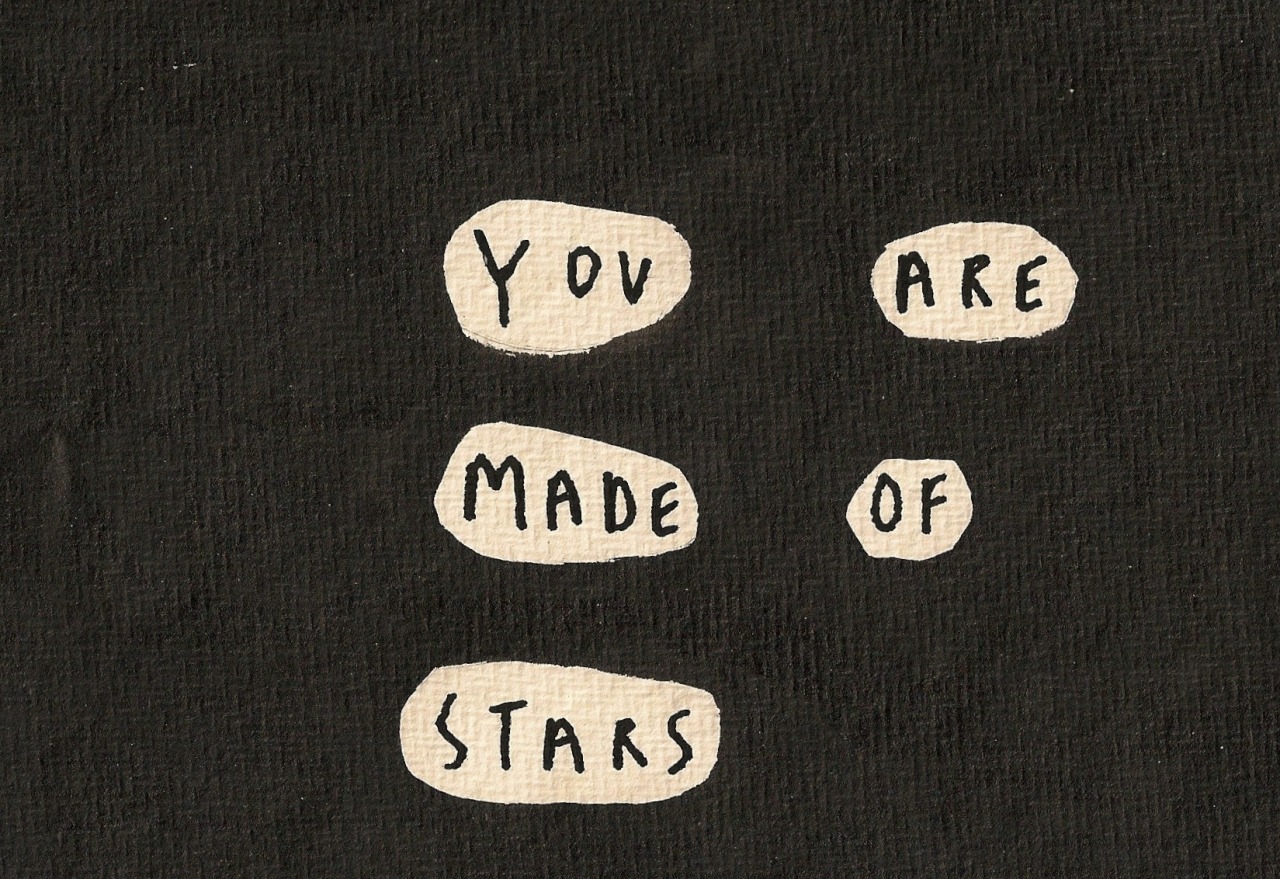
It's weird to be here, at an inflection point. Or maybe "reflection point" is more fitting. Either way, looking back on the three decades I've been around, and seeing where I've gone in such a short time, is incredible.
I've made it so much farther than I ever thought I was capable of going.
I'm an engaged member of my community. I go to fun events, festivals, and throw rad parties. I speak at events and conferences about my industry and experiences. I share good, deep laughs with the people I care about on a regular basis. I tell my friends and partner how I feel, and how much they mean to me. I've moved away. Moved back. I quit my safe desk job and put myself through university. I earned a B.A. I've backpacked through three countries. I've seen a squid that glows in the dark.
I run my own company.
I run a fucking company. That has clients, pays people, and pays for my lifestyle.
(That one still surprises me.)
But yet... here we are.
Holy shit.
A few months ago my therapist asked, what would say to my younger self, now?
What would I say to the little girl who was told, from the start, that she would never amount to anything? To the teenager who was told that she was a fundamentally bad person? To the woman who spent most of her adult life fighting back against that engrained belief?
I started crying.
"I'd tell her that it gets better. So, so much better than she could have imagined."
(I really do believe that, you know.)
It got better.
A lot better.
And I'm really, really excited to see where it goes.
Happy early 30th birthday to me.
- yr girl, Shaner
A Letter to My University Self
- by Alyson Shane
Earnest inspired today's post with the project of sharing some thoughts about university life, and writing a 'letter to my college self.' (As a student loan refinancing company, they have some great advice about the financial side of your University experience as well.)
It's weird to think that it's been six years since I started university. So much has changed, and things have worked out in unexpected and amazing ways. I remember being so anxious, so scared, as a student, because I worried about where my life would lead me.
Which is why I decided to pen this letter. It's to myself, at 23, as I was about to start my first year at the University of Winnipeg. Below are some things that I wish I could go back and say to myself:
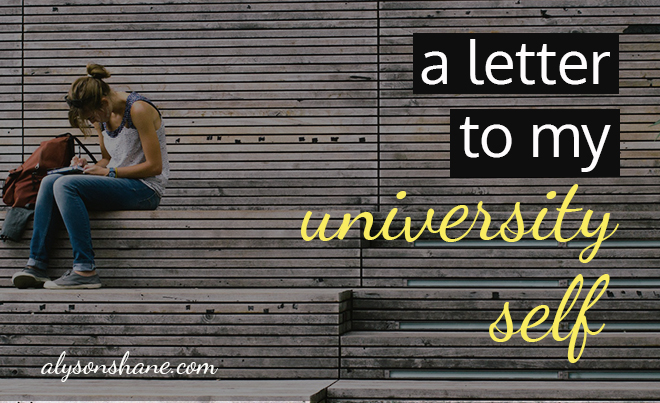
Dear Alyson
I'm writing to you to address some of the fears that I know you're having right now. Leaving your "safe" government job to pursue your education has been a difficult and emotional process, and there have been a lot of moments of anxiety and uncertainty leading up to this point.
But you're here now, and here are some things that I wish you could take forward with you. Maybe they'll make those moments of doubt a little less overwhelming:
University is Not Like in the Movies
You know how most movies and TV shows portray university as being this coming-of-age, self-discovery and self-actualization process? It's not really like that at all.
The tight-knit groups of friends are the ones who are in specific programs, or already knew each other from high school. At 22, you'll be older than most of your classmates. Every time you walk into a new classroom, you'll be walking into a room of strangers.
This is going to terrify you.
But eventually you'll get used to choosing to sit wherever you want; you'll start to feel more comfortable asking to join tables of students; you'll speak up in class because you don't worry about "sounding stupid" in front of your friends, which will soothe your anxiety.
There are times that it will be lonely, but soon you'll come to relish your spares in-between classes, writing in one of the library hallways with the floor-to-ceiling windows, watching the snow fall. The times where you were forced to be self-directed and independent will help shape how you feel about yourself in the future.
It won't be what you expected, but that will be okay.
Your Career Will Work Itself Out
There was a quiet dread which hung over my university years.
After a few exams I established that I was, in fact, smart enough to be in university (something which has been expressed to me several times by other people) but a lingering fear held onto me for my remainder of my time as a student:
What was I going to do after I graduated?
For most university students, this isn't a huge problem; most people live with their parents while attending post-secondary, but I wasn't afforded that luxury. I was pretty lucky as a student: I managed to find some decent paying jobs with flexible hours during the school year, and always managed to find some full-time summer work, as well. But after university... that big, looming space full of uncertainty sometimes felt like too much to bear. I struggled to determine what I wanted to do, exactly, and where.
It will work itself out in the end. You'll have a few ups and downs, and learn a few heard lessons along the way... but eventually you will develop the confidence and self-awareness to shape your own career and not depend on employers for your self-worth.
You will wind up running your own company, and you'll fall in love with the hustle and excitement and ever-changing nature or business. It will work itself out.
Enjoy Your Time as a Student
University was the first time I enjoyed being in an academic setting. Growing up I was told repeatedly that I was lazy and unmotivated, and that I should give up on any thoughts of attending university because I wasn't smart enough to do well.
You're going to feel anxious and stressed at first, but eventually you're going to fall into the natural ebb and flow of classes, homework, exams, and studying each term. You'll come to appreciate the excitement of a brand new class with a new professor, the feeling of finishing a term paper, and handing in an exam at the end of the year.
Most importantly, make sure to take time to yourself during the day. Find a quiet spot in the library, or on some remote nook or cranny in Wesley Hall. Spread out your snacks, your water, your homework, and enjoy the feeling of happy solitude that will often wash over you during these moments.
Being a university student is like being in a little world of your own. It's not quite high school, and it's certainly not the professional working world, and though you won't fully grasp it at the time, the experiences and time that you have will help build your confidence and independence in a way that nothing else in your life will have allowed to date.
It's Going to be Worth It
The single most defining thing that came from my time as a university student was that I learned to believe in myself.
I know that you don't believe in yourself right now; you feel like it was a fluke that you got accepted in the first place, and I know that impostor syndrome will plague for years after you earn your diploma.
Completing university didn't magically transform me into the person that I am today, but, looking back, it was a stepping stone along the path to believing in myself.
Stay strong,
Alyson (Your Future Self)
Do you have anything you wish you could tell your younger self? Tweet at me or let me know in the comments!
Why We Need Twitter (or Something Like It) More Than Ever
- by Alyson Shane
For myself, and many people that I know, the world feels like an unfamiliar place right now.
The recent election of Donald Trump in the United States, and the apparent rise of white nationalism, anti-feminism, Islamophobia, homophobia, antisemitism, etc. (also known as the "alt right") has many people feeling scared and confused, and a lot of articles, from WIRED to Mashable, have emerged recently about the "echo chamber" that social media, particularly Facebook, has created which has led us to where we are today.
With that in mind, I wanted to discuss some of the ways in which I believe Twitter is actually getting things right in terms of providing a non-insular opportunity for people to express themselves, easily find dissenting viewpoints, and engage with them in conversation.

Before we begin
I know that there are a lot of dissenting views out there about Twitter, and it's usefulness as a social platform. Before I go too much further, let me get these things out of the way:
- Yes, I know that their CEO is wildly unpopular
- Yes, I know they have had issues addressing harassment and hate speech in the past
- Yes, I know that their value has tanked
- Yes, I know they have issues acquiring new users
This post isn't about any of those things.
What I'd like to do is discuss some of the things that make Twitter an important and necessary platform for our society right now, and how it (or something with the features I'm going to highlight) must continue to offer in order to allow for citizen journalism, the sharing of thoughts and ideas, and discussion online.
Hashtags (that people really use)
This morning I got up and read (on Twitter) that the cast of the Broadway musical Hamilton delivered a speech to United States vice-president elect Mike Pence at the end of their show last night. Within a few hours, right-leaning Twitter users took to the social network to start pushing a hashtag called #BoycottHamilton, urging (rather obviously) Trump supporters to boycott the play.
The fact that a hashtag emerged isn't what's important, but what you see when you click on the hashtag is:
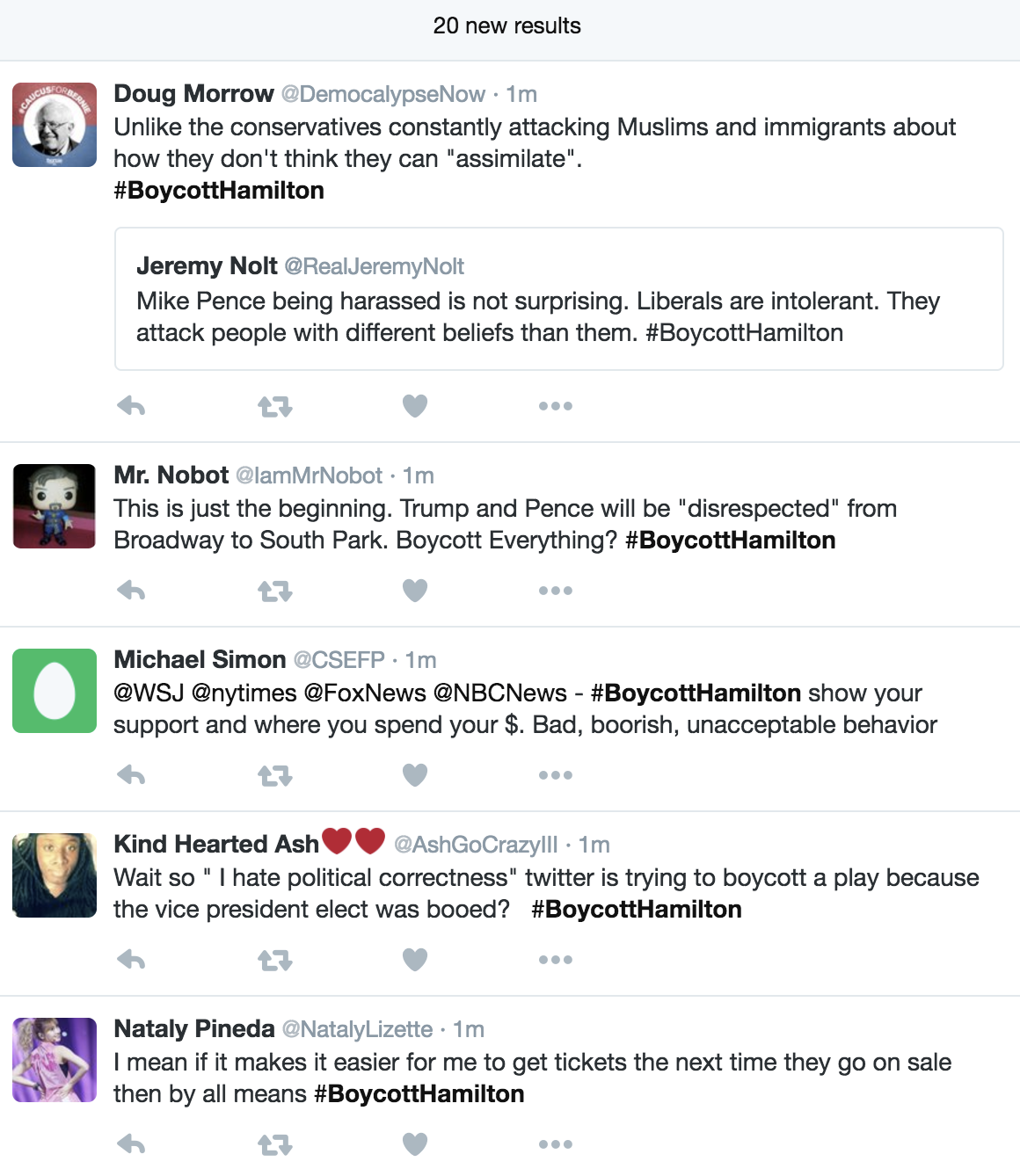
Even in this single snapshot we see a series of diverse opinions. Some don't take it seriously, some are worked up, etc. Not only does a timeline around a hashtag display diverse opinions, but Twitter also offers you this added level of engagement with a hashtag's tweets:
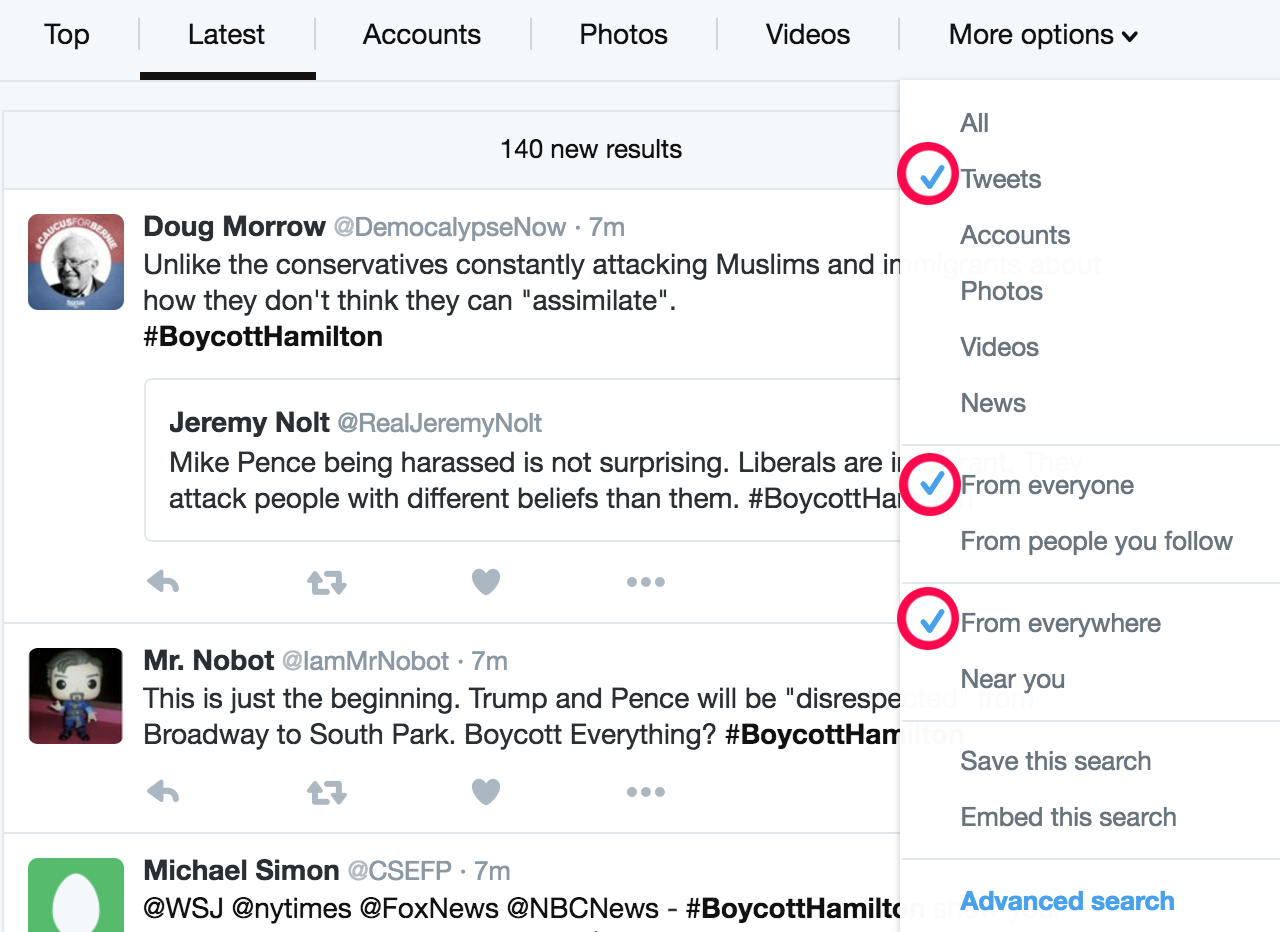
These settings are on by default. This means that in order to find yourself inside a Twitter echo chamber, you literally have to take the necessary steps to insulate yourself against opposing viewpoints.
Compare this to Facebook, which deliberately shows you news items and articles that appeal to you and goes out of their way to make changing those settings a challenge. Yes, hashtags are available to use on Facebook, but according to a 2016 BuzzSumo report, posts without hashtags received more interaction than posts with hashtags. This means that not only are hashtags not popular in Facebook, but that including a hashtag in your post actually lowers the likelihood that someone will engage with it.
So not only is Facebook pushing appealing news at you, but the primary tool at your disposal to find dissenting voices (a hashtag) are rarely used. This means that in order to find different opinions you either need to already be Facebook Friends with someone who disagrees with you, or you have to already subscribe to a Facebook Page or Group where you're likely to hear dissenting views.
But even in that scenario, you still have to actively seek it out, Like, and in some cases apply to join, a Group or Page which espouses views that you disagree with. Then, once you start expressing your opposing viewpoints you encounter the next hurdle: the wall of text. Which brings me to my next point:
Character and post length
Algorithms aside, one of the biggest differences when it comes to hearing opposing viewpoints online, and actually paying attention to them, is that Twitter forces you to be brief, at least in the context of a single tweet.
On Facebook there's no character limit, which means people can (and do) go on ad nauseam to explain their point of view. There's nothing inherently wrong with this, but it highlights the difference that Twitter acts like a conversation, while Facebook acts like a soapbox.
Being on the receiving end of a "Twitter storm" sucks; I can tell you from experience. But it's much easier to process and digest someone else's point of view in 140 characters than digesting (and responding to) several massive paragraphs (or, if you're unlucky, a single monolithic wall of text.)
Tweets, for all their faults, force people to break up their thought process, which provides opportunities for others to interject, respond, and get involved without having to unpack multiple paragraphs of text. I've engaged in debates with people on Twitter over a specific hashtag and more often than not both sides receive support from people who happened to see the conversation, and wanted to participate.
On the flip side, Facebook allows comments to be up to 63,206 characters in length, according to a 2016 HubSpot article. To put that into context: the average book is approximately 500,000 characters, meaning you can fit an entire novel in 9 Facebook status updates.
Just because tweets are shorter doesn't mean that they won't get ignored, or fluffed off, but when a Facebook user replies with a wall of text, a common sign of trolling, it's much easier to dismiss or simply ignore it.
Encouraging conversations
One of the points that I made earlier was about hashtags, and how searching for a hashtag meant that you could easily find differing opinions. It's also important to note that including a hashtag in your tweets also means that other people can easily find you.
Tweeting about a topic like #BlackLivesMatter, #Election2016 or #MAGA (to name just a few) will not only bring like-minded users out of the woodwork, but it's almost guaranteed that someone from the other side of the political spectrum will tweet back at you.
Tweets which include hashtags are 33% more likely to get retweeted than those that don't use them, and this (somewhat older) article from Sysomos which examined over 1.2 billion tweets in two months, which states that "29% of all tweets produced a reaction - a reply or a retweet. Of this group of tweets, 19.3% were retweets and the rest replies."
This 2016 report found that Twitter accounts for 30% of all global social sharing. At 500 million tweets sent each day (or 6,000 tweets every second), that's a lot of replies and retweets, even if Sysomos' 2010 numbers haven't grown since the article was published.
Not only does voicing your opinion on Twitter increase your chances of interacting with someone who disagrees with you, but when a discussion is retweeted, its visibility becomes amplified too. As more users participate, it increases the likelihood that you will run into someone who disagrees with you even more.
Default "public" profiles
Transparency is, in my opinion, the defining feature which makes Twitter such a powerful tool for discussion: when you tweet at someone your reply is completely public.
Unless you go out of your way to change your Twitter profile to "private," your entire tweet history including replies, retweets, quotes, and media will be available for any one whether they are logged in to Twitter or not. And if a tweet is retweeted, even deleting it later won't delete the retweet copy.
Facebook, conversely, was designed to be a more exclusive experience. From day one Facebook's defining feature has been a user's ability to selectively choose who can see what they share, and, for the most part anyway, the conversations you are able to have are limited to the amount of Facebook Friends you've approved, or the number of Groups or Pages you Like or participate in.
While the average Facebook user's Timeline isn't completely private (posts which tag other users, for example, will show up unless otherwise specified) and their comments may be seen if another user's privacy settings are more lax, overall what you say on Facebook isn't immediately available to the public in the same way that Twitter's Timelines are.
Yes, people are can be "outed" if they say something that another user disagrees with, but unless the person is a celebrity, political figure, or person of interest, the average user isn't going to re-share a hateful comment their coworker made and say "I never realized that so-and-so in Accounting was such an antisemite!"
We just don't call each other out in that way on Facebook at a personal level, and on Twitter, we don't really need to, because whatever a user posts is readily available to the world at large.
Easy access to a variety of opinions
Until recently, when we examined a specific historical event or time we had a limited number of sources to draw from. Nowadays, social media allows us to look into the life of the average person and experience, sometimes in real time, what they are experiencing.
Probably the most memorable of these incidents was the Twitter coverage of the protests over the 2009 Iranian election. Foreign media had been banned from reporting, and the stream of live coverage from everyday citizens on the ground led to a request from the U.S. State Department to put off scheduled maintenance which would have caused an outage in Iran during the protests.
Twitter provided the world with access to real-time information about a national crisis, and ever since has become the go-to source for breaking news including weather, political uprisings, and more. But it does more than just give us "on the ground" access to important events; it allows for public scrutiny of the facts, so that while false information will still get around, corrections have the chance of spreading in realtime too.
By using hashtags to discuss a common theme or event, Twitter users are able to contribute to a global and multi-faceted real-time narrative about what's happening in the world that they live in. Clicking on the hashtag they're using will show them a diverse array of opinions on the topic.
Here's another screenshot of some of the 'Live' #BoycottHamilton tweets:
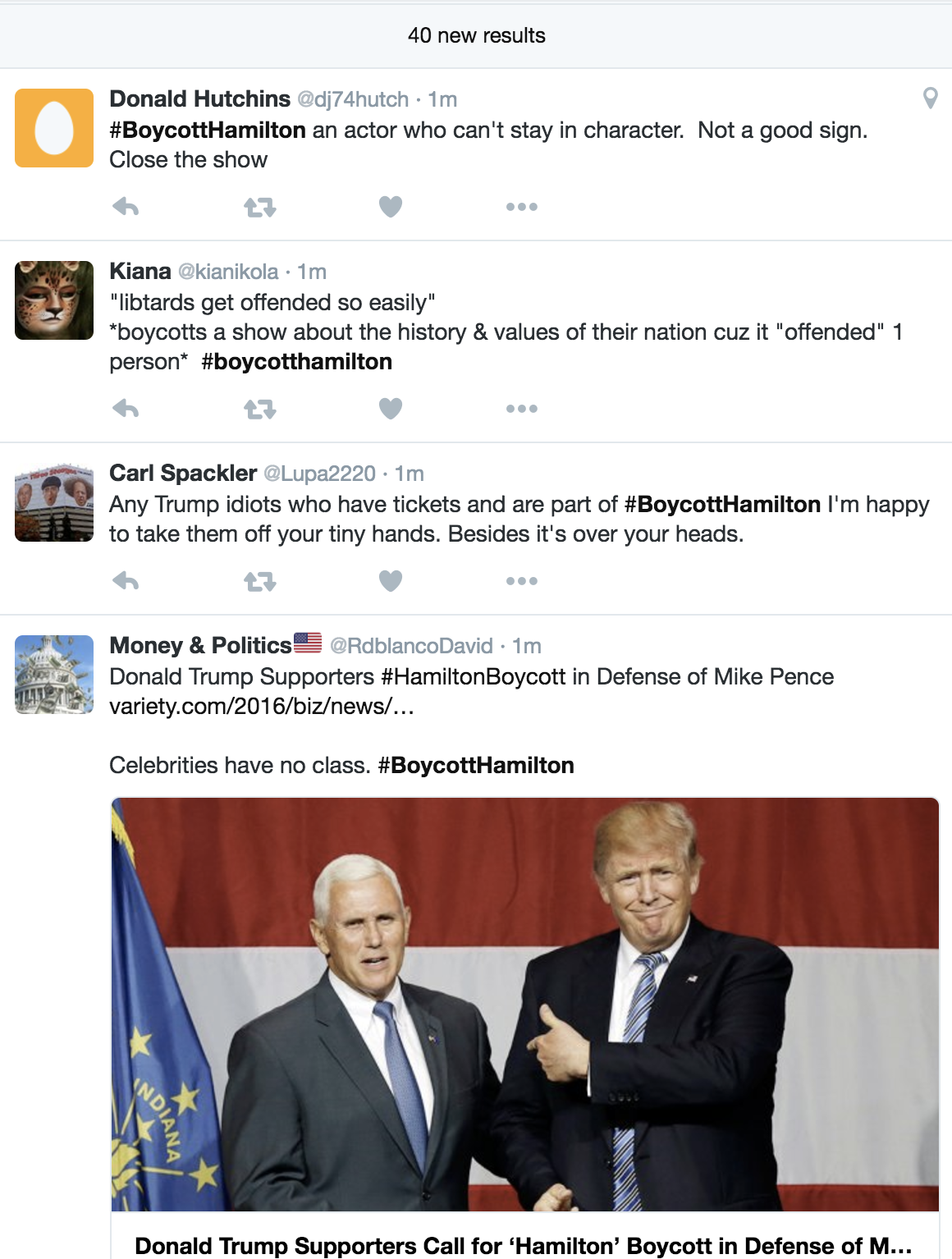
In closing
To be clear: I don't think that Twitter is the perfect platform. It has its share of flaws and issues, and eventually something will come along to replace it (hence the title of this post).
However, I do think that it's important to discuss the elements of the social network which I think make it good, and relevant. Twitter is an important tool for discussion and news, and provides more opportunities for users to engage with people outside of their "echo chamber."
Now, more than ever it seems, we need to be able to hear what other people have to say.
The Catharsis of Crying
- by Alyson Shane
How many times did you cry this week?
I cried 4 times.
- On Tuesday: I felt overwhelmed with my workload for the week (short weeks are hard.)
- On Wednesday: I was thinking about my Grandma, and was excited about seeing her this Christmas.
- On Thursday: In therapy (obviously.)
- Today: Watching this interview with Gord Downie and realizing how short my time with the person I love might be.
This used to be something that I was embarrassed about, but over the past few years I've come to accept that crying is just part of my existence. I used to fight it, and try to hold the tears back whenever they came, but these days I just let it out.
It's the best thing I've done for my mental health, if I'm being honest.
A Cryin' Shame(ing)
When I was growing up, my family members made fun of me for crying so much. I've always been moved to tears easily; the second something tugs at my heartstrings - good or bad - my eyes well up. My aunt once told me that she "worried that I was depressed" as a teenager because I cried at the drop of a hat.
In our household, crying was seen as a sign of weakness and something to be ashamed of. Allowing other people to see real manifestations of your feelings wasn't appropriate, and we were regularly warned against the dangers of sharing our thoughts and feelings with other people.
I remember, once, after a breakup in high school, I was crying in my room and my mother popped her head in to see what was wrong. I said "I'm so sad" and she replied by saying "I hope you don't act this way in front of your friends, or they'll start to get tired of hearing about it and stop being friends with you."
My family, which is of British descent, subscribes to the "suck it up" mentality: publicly displaying emotions of heartbreak, sorrow, or anything other than the status quo was always strongly discouraged, and my brothers and I were shamed and often belittled whenever we allowed our emotions to "get the better of us."
But in the last few months and years I've allowed myself to start getting over those fears. When I feel overwhelmed (which is often, running a business is a scary and often stressful undertaking) I just allow the few tears to come, and then wipe them on and move on with my day.
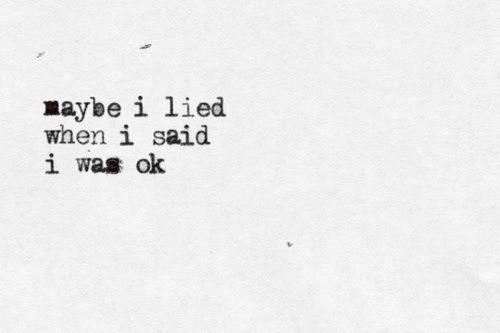
Anxiety and Crying
I have anxiety.
Anyone who has ever felt anxious knows that the plethora of negative emotions that come with it can often feel completely overwhelming, and for a long time I felt guilty because I used crying (secretly) as a coping mechanism. I cried in bathroom stalls and in my apartment when nobody else was home. When I was a kid I would go for long, extended walks through my neighbourhood because I didn't want my family to see or hear me crying.
For years, whenever I cried, or felt like I was going to cry, I would shame myself and feel guilty for not being able to prevent it.
I can't control my emotions.
I'm immature because I need to cry.
I'm not a good person because I cry easily.
However, in therapy (and with some supports from my friends and partner) I've come to realize that crying is just a part of life, and is a normal part of being in touch with my emotions. I used to feel guilty and get upset whenever I cried because I was trying to hide from my own thoughts and feelings, and I am so done with feeling guilty over crying.
Crying and Coming Together
The thing that's changed the most for me, and what led me to write this post, is that crying in front of other people has had the opposite effect from what my family told me it would: it's brought me closer to them.
John and I cry in front of each other regularly. Often, when we talk about our lives, our families, or our feelings for each other, one or both of us will start tearing up. Sometimes, when I talk to my friends about my anxiety, or things that are challenging me, I shed a few tears. And you know what? They don't hate me for it, and it doesn't make them want to be my friend any less.
In fact, knowing that I can be open with the people in my life in such a deeply personal way has been illuminating and life-changing. I can be myself; my sometimes-sad, anxious, messed-up self, and I can cry about it and be honest about it and it's the healthiest change that I've made in a long time.
Benefits of Crying
In fact, crying is actually good for you. Here are a few reasons why:
- Tears remove toxins. Tears actually remove toxins from our bodies. Tears help humans remove chemicals that build up during emotional stress.
- Crying relieves stress. Ongoing levels of stress can increase your risk of a heart attack and can damage your brain, and crying can help alleviate those stressful feelings.
- Crying lowers your blood pressure. Crying has been found to lower blood pressure and pulse rate immediately after a "big cry."
- It reduces manganese in the body. Crying reduces the body's manganese level. Manganese is a mineral which affects our moods, and is found in up to 30 times greater concentration in tears than in blood serum.
- Crying means you're human. All mammals' eyes are moistened and soothed by tears, but humans are the only mammals who express tears as a response to emotional stress or stimuli. Tears (and showing emotions) motivate us to empathize with each other, which encourages us to work together and survive.
So you know what? The next time you're feeling overwhelmed, or really happy... just cry it out. Hell, ugly cry if you must. There's no shame in it (as I'm slowly learning), and it's actually really good for you to cry it out sometimes.
Here's to a good cry!
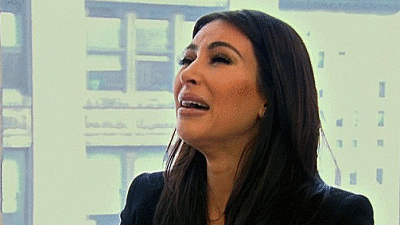
Reflections on 365+ Days of Business Ownership
- by Alyson Shane
A few weeks ago I passed a significant personal and professional milestone:
June 30th, 2016 was my one-year anniversary as a full-time business owner.
The past 365+ days have been an incredible journey; I've learned a lot, made mistakes, discovered a lot about myself and my life has changed in so many ways that it felt appropriate to share some of the things I've learned this past year with all of you:
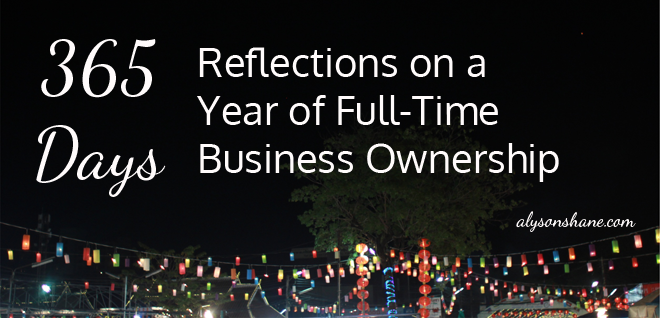
It's okay to not be a "good employee"
I'll be honest with you: I used to get depressed when I thought about my career. Even after going to university and working roles that were actually in my field (instead of being an accountant, oh my god) I'd still hadn't found a job that did it for me. I'd think of all those years ahead of me, likely spent in dull offices, trying to find a position or organization that hopefully wouldn't bore me to tears after six months and it was so depressing.
I also had a lot of anxiety around being a "good employee." I didn't like sitting at a desk for a pre-determined amount of hours, asking for permission to take an extended lunch or book an appointment, taking a vacation, or playing office politics (ugh). I'm also not afraid to stand up for myself and point out when I think something unfair or just plain wrong, which doesn't bode well in the world of 9-5's.
So what feels different? The biggest thing is that while I'm beholden to my clients, and I technically have more "bosses" now than I did before, we have a mutually respectful relationship which can be hard to find in the office world.
I'm honest with my clients, and they rely on me to create the right content and steer them in the right direction, which results in a level of respect and collaboration that I was never able to enjoy when I worked for someone else.
Your value isn't just tied up in your qualifications
Before I went to university the advice everyone gave me was "you have to go to university! You'll never be able to get a decent job if you don't go to university!" So that's what I did. I spent three years at the University of Winnipeg earning my Bachelor of Arts, and you know what? Not one of my clients has ever asked me about my formal education.
To be clear: I am in no way saying that getting an education isn't worth it. University was an amazing experience, and I learned a lot, but when it comes to running a service-based business my experience has been that it's more important to be able to demonstrate your value and your skills than it is to have a piece of paper that declares it for you.
Instead, people look at my website, blog, social feeds, and where I've been published or asked to speak to see examples of my knowledge.
You can say no to things that you don't want
One of the most empowering things that I've learned in this past year is to say "no" when something doesn't make me feel good. I don't take on projects that I don't want, and I don't work with clients that I don't like.
This is incredibly hard to do; we're conditioned to believe that every opportunity that comes our way may be the last, and especially when you're new to being a solo business owner it's hard not to think "if I don't take this, will I regret it? Why am I turning down money? Who in their right mind turns down money?!"
Except money isn't the key to happiness. Instead of chasing money, I chase value. I've turned down opportunities that could have resulted in a nice boost to my bank account, but which would have made me miserable, and I don't regret them at all. Instead, I focus my energy on finding opportunities and work that are more suited to my tastes and personality, and it feels amazing.
Irregular income takes some getting used to
Before I started working for myself I would say things like "I could never go from biweekly payments, it's so scary!" and you know what? It is, and it takes some getting used to.
Being paid on a monthly or irregular basis means that I have to pay more attention to my bank balance than I did before, but since I was planning to leave my 9-5 I spent a few months building up a nest egg which rolls over from month to month. That way I know that I have enough to cover my living expenses for a few months if a bunch of work dried up at once.
However, I think that this is worth mentioning: even though I get paid irregularly, diversifying my income feels more secure than a single job ever did. When I worked for someone else if I lost my job 100% of my income was gone, but now if I lose a client I just hustle a bit harder and find another one to replace that dip in my income.
Also, as I said above since all of my earning potential is wrapped up in how hard I work it often means that I make double or triple one month what I made the previous one.
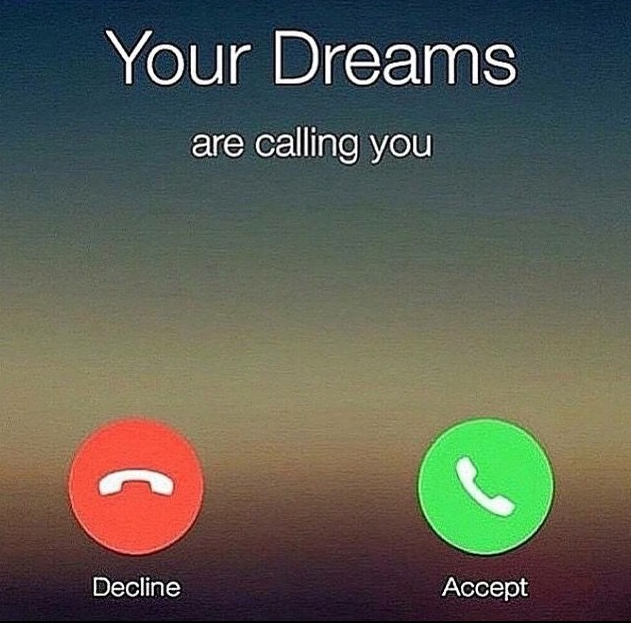
The freedom of managing your life is the most worthwhile thing
This is the single biggest takeaway that I can share with you.
I grew up believing that my work was just a means to an end; that I shouldn't expect to like my job or my work and that sitting at a desk doing uninspiring things for 40 hours a week was all I could ever hope for out of my life. This is such utter bullshit, you guys.
I've enjoyed a year of having the freedom to choose the work I want; to take an afternoon off to go shopping with a friend; to work on a Sunday or during the evening; to take a 3-week vacation to Central America and to work on the road.
I do what I want and am building my ideal life on my terms, and I get to grow something amazing and completely my own all from scratch. The work I do is fun and rewarding, and most importantly it makes my clients feel good, too.
Personal takeaways from 365+ days
I used to feel trapped by my life.
I didn't know what I wanted to do, where I wanted to go professionally, and I felt shackled to a corporate work and life that I resented and which, frankly, wasn't a good fit for me. It wasn't until I started building my client list and hanging out with other creatives and entrepreneurs that I realized that doing the thing that you love for a living is the key to being truly happy all the time.
The past 365+ days have been an exercise in un-learning a lot of things that I thought I knew about my value as a person and a creative professional. I've also learned so much about myself and have developed such a deep appreciation for my life that I can barely put it into words. It's been an exciting, challenging, and rewarding experience that I wouldn't trade for anything.
Thank you to my fantastic partner John, my incredible and supportive friends, and to my clients who do me the honour of working with me.
